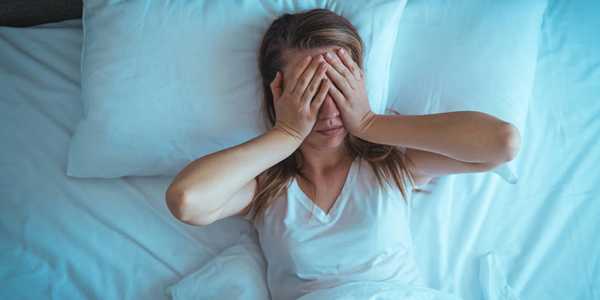3 Key Signs You May Have Sleep Apnea and How to Treat It?
Have you ever happened to wake up feeling like you didn't sleep? You may have sleep apnea and not even know about it. This is a sneaky sleep disorder that currently has millions of patients, but often, people do not even suspect that they have it.
Sleep apnea can cause a lot of havoc to your health if you don't manage it. It's not as simple as yawning throughout the day and feeling exhausted at one point. It can become the cause of cardiovascular diseases and strokes. Scary stuff, right?

But no worries; we are here to assist you. In this post, we'll explain three main symptoms that can signal that you are suffering from sleep apnea and educate you about what you can do.
Read on to learn more about identifying sleep apnea and regaining the healthy sleep you deserve. You will never regret it; your body will thank you.
Importance of Identifying Sleep Apnea
Spotting sleep apnea early can be a real game-changer. Better sleep means you'll feel more alive during the day, and who doesn't want that?
When you tackle sleep apnea head-on, your whole health can improve. Your heart will thank you, and your brain will work better. It's like giving your body a tune-up.
At work, you'll be sharper and more focused. You won't be nodding off during those long meetings. Your boss might even notice the difference!
Your relationships could improve, too. When you're not cranky from insufficient sleep, you're more excellent to be around, and your partner might also stop complaining about your snoring.
The best part? Dealing with sleep apnea now means you're less likely to face serious health problems. It's like investing in your future self.
Recognizing the Key Signs of Sleep Apnea
Alright, let's dive into the nitty-gritty. How do you know if you've got sleep apnea? There are three big signs to watch out for. Don't worry; we'll break them down so you can easily spot them. Remember that having one or two doesn't always mean you have sleep apnea, but it's worth checking out if they sound familiar.
1. Loud and Chronic Snoring
Have you ever been told you sound like a freight train at night? That might be more than annoying snoring. Sleep apnea snoring is a whole different beast.
This isn't your run-of-the-mill snoring that happens after a few beers. We're talking about the kind that keeps your partner up every night. It's loud, it's constant, and weird gasps or choking sounds often punctuate it.
Here's what to look out for:
● Snoring so loud you can hear it through walls
● It happens almost every single night
● You (or your partner) notice choking or gasping sounds mixed in
If this sounds like you, it might be time to talk with a doctor. Not all snorers have sleep apnea, but most sufferers snore.
2. Excessive Daytime Sleepiness
Could you nap anywhere, anytime? That's not normal, folks. Sleep apnea interferes with your sleep cycles, leaving you exhausted during the day.
This is more than just feeling a bit tired after a late night. We're talking about the kind of sleepiness that makes everyday tasks feel like climbing Mount Everest. It's persistent and doesn't go away, no matter how much coffee you chug.
Here's how it might show up in your life:
● You find yourself nodding off during meetings or while watching TV
● Focusing on work feels like an Olympic sport
● You've had some close calls while driving because you're so sleepy
If you constantly struggle to keep your eyes open, sleep apnea may be a possible cause.
3. Morning Headaches and Dry Mouth
You are waking up feeling like you've got a hangover, even when you didn't drink? That could be sleep apnea talking.

When you can't breathe properly at night, your body doesn't get enough oxygen. This can lead to morning headaches that feel like someone's squeezing your skull. And that dry, parched feeling in your mouth? That's from sleeping with your mouth open, trying to get more air.
Let's do a quick check:
1. Do you often wake up with a headache?
2. Is your mouth usually dry in the morning?
3. Does drinking water before bed not help?
4. Do these symptoms happen most days of the week?
If you answered yes to most of these, sleep apnea could be the culprit. But remember, lots of things can cause headaches and dry mouth. If unsure, it's always best to chat with a doctor.
How to Treat Sleep Apnea?
Do you have sleep apnea? Please don't ignore it. There are ways to fix it, and getting help can make a huge difference in your feelings.
Let's talk about your options:
CPAP therapy is a popular choice. It's a machine that helps you breathe while you sleep. It looks weird, but many people say it's a game-changer. It takes some getting used to, but it can improve your sleep.
Sometimes, simple changes can help. Losing weight or skipping that nightcap might do the trick. These minor tweaks can make a significant impact on some folks.
Dental appliances are another option. They're like special mouthguards that keep your airway open at night. They are less bulky than CPAP but might only work for some.
In some cases, doctors might suggest surgery. It's not the first choice, but it can help if other treatments fail don't.
Here's the deal: only a sleep specialist can tell you what's best for you. They'll examine your specific case and help you find the proper fix. Don't try to figure this out alone—get a pro involved. Your health is worth it.
Take Action Now: Don't Let Sleep Apnea Rob Your Health
If you've spotted any of these signs, don't wait around. Sleep apnea isn't just about lousy sleep - it's about your health and happiness.
Think about it: how much better would your life be with proper rest? One of our readers, Mike, said, "Getting my sleep apnea treated was like waking up from a 10-year fog. I feel alive again!"
Take advantage of feeling your best. Every night you wait is another night of poor sleep and potential health risks.
Talk to your doctor today. They can help you get the correct diagnosis and treatment. Your future self will thank you for taking this step now.
Frequently Asked Questions
Q: Can sleep apnea go away on its own?
Ans: Not usually. While lifestyle changes can help, most people need treatment. Losing weight or changing sleep positions might improve mild cases, but it's best to work with a doctor for proper management.
Q: Is snoring all the time a sign of sleep apnea?
Ans: Only sometimes. Many people snore without sleep apnea. But it might be a sign if your snoring is loud, frequent, and comes with gasping or choking sounds. Get checked if you're concerned.
Q: How is sleep apnea diagnosed?
Ans: Doctors usually diagnose sleep apnea through a sleep study, which can be done at a sleep centre or home. The test monitors your breathing, heart rate, and oxygen levels while you sleep.
Q: Is there any natural remedy for sleep apnea?
Ans: Some natural approaches might help, like losing weight, avoiding alcohol before bed, or sleeping on your side. But these aren't guaranteed fixes. Always talk to a doctor for proper treatment.





